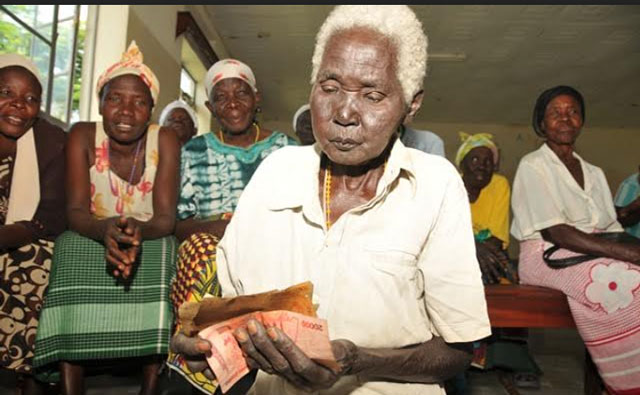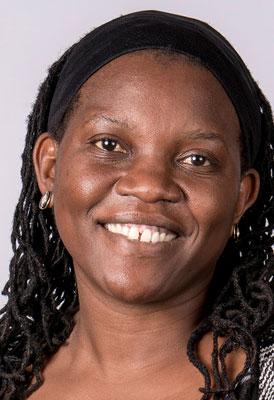
Nearly 50% of orphaned children live with their grandparents
COMMENT | LYDIA MIREMBE | Recently I was riding in a taxi, enduring Kampala’s evening traffic jam, as motorists and cyclists crisscrossed between lanes, taking advantage of every available space to pull forward. Suddenly I heard the driver of our taxi shouting at another motorist, “Mzee okaddiye, ebyokuvuga mu kibuga tokyabisobola, tera odde mu kyalo.” Loosely translated, his statement meant, “gentleman, you’re too old to be driving in the city, you had better retire to the village.”
The situation also reminded me of an older gentleman who went to claim his retirement benefits from his scheme. He had suffered a stroke, which had affected his writing ability and altered his signature significantly. The young lady who was serving him insisted that his current signature didn’t match the specimen in the scheme records. The gentleman had to go through a harrowing process to prove himself. When he told me his story, his concluding statement was, “It’s a matter of time before one reaches old age and retirement; it is a stage we must all look forward to. How will the young lady feel when she goes to claim her benefits and she gets such treatment?”
The two experiences struck me so! Why would a young man be so disrespectful to an elderly motorist, who never did any harm but drove without crisscrossing and cutting off fellow drivers. Why would a young lady be blind to the fact that old age affects bodily functions in numerous ways? How many other older persons are being insulted and abused, just because they are doing things at a pace that’s suited to their age and status?
Unfortunately, such abuse of older persons is all too common. Many older persons are bullied, insulted, pushed around and denied services on account of their age and its attendant effects. For example, old age comes with health complications and a reduction in effectiveness of bodily functions. Some older persons are slow, others have visual and hearing impairment, others are incontinent, some suffer memory loss, dementia…and a whole host of problems.
In Uganda particularly, the situation of older persons is compounded by poverty. Many of them have stopped working and they don’t have a reliable income. It is estimated that in Uganda over 80% of older persons live in rural areas, involved in subsistence farming – which can’t yield much given their infirmity. Many of them are saddled with looking after grandchildren – nearly 50% of orphaned children live with their grandparents. Moreover, the traditional family structures where young ones looked after their ageing relatives, have been destroyed. The social fabric that glued families together, where older members of society were deemed as valuable and respectable, has all but decayed. It is common to find senior citizens who raised and educated children, living destitute lives, abandoned by their own offspring. All these situations render older persons vulnerable and unable to enjoy their full rights.
Since the enactment of the URBRA Act in 2011, the pensions and retirement benefits sector has been effectively regulated, paving way for establishment of numerous schemes and avenues through which people can undertake long-term saving.
In a country where over 50% of the population is below age 16, it is easy to forget about the minority older ones who account for only 2.5% of the population – as per preliminary results of the 2024 national population census released by Uganda Bureau of Statistics. As things around the country change at supersonic speed, there is a danger of leaving the older ones behind, effectively denying them a chance to live a meaningful and fulfilling life. Take the digital revolution for example, which is taking root in all areas of service provision. How many old people above the age of 60 are able to cope? Take also the example of rapid urbanisation, with structures mushrooming everywhere, dwarfing the humble dwellings that the old ones are used to – and killing off of all green areas where the elderly love to bask. Take a look at the roads, where boda-bodas are flying and cars careening – how can older persons cope with such changes. But who is looking out for them?
The Government of Uganda recognises that as people grow older, they should indeed continue enjoying dignified lives through active participation in economic, social, cultural and political spheres. This has been done through affirmative action to address the older persons’ needs and to eliminate all forms of neglect, abuse and violence against them. The National Constitution of Uganda under the national objectives stipulates that; “the state shall make reasonable provision for the welfare and maintenance of the aged.” Additionally, a national policy for older persons has been issued, plus the national social protection policy which recognises the need for social protection interventions for senior citizens.
The Government also introduced the Social Assistance Grant for Empowerment (SAGE) through which older persons receive a monthly grant of UGX25,000. The positive impact of SAGE has cut across various social sectors, yielding both social and economic returns in form of reduced poverty and increased productive capacity of beneficiaries. It is undeniable that financial independence goes a long way in emancipating older persons, giving them a more dignified life, affording them access to life’s necessities. There should be deliberate efforts to ensure a basic cash-flow for all older persons.
One of the most effective ways to reduce old-age poverty and vulnerability of older persons, is to encourage retirement planning and saving. If all citizens saved for retirement during their youthful and productive years, old-age poverty would be significantly reduced or even totally eradicated. Old-age does not come overnight, it is a journey that we walk every day. We progressively move towards retirement and old age, so we are sure that it will come. To some, it may come sooner owing to unavoidable circumstances, but to many it is a long, process that extends over decades.
Since the enactment of the URBRA Act in 2011, the pensions and retirement benefits sector has been effectively regulated, paving way for establishment of numerous schemes and avenues through which people can undertake long-term saving. The regulations and standards enforced by the regulator ensure that savings are in safe custody, prudently invested and readily available when a saver reaches retirement. The favourable investment context has ensured that savings yield a good return for all members – witness the NSSF which has consistently declared interest way above the rate of inflation for the last ten years.
Therefore, as Uganda marks the International Day of Older Persons on October 1, it is important to recognize the importance of retirement saving as a pillar in eradication of old-age poverty, and a key step towards the realization and protection of the rights of older persons. With financial independence, senior citizens will facilitate their lives and command some respect, especially from the younger generation.
*****
 Lydia Mirembe is the Manager, Corporate and Public Affairs, Uganda Retirement Benefits Regulatory Authority (URBRA)
Lydia Mirembe is the Manager, Corporate and Public Affairs, Uganda Retirement Benefits Regulatory Authority (URBRA)
 The Independent Uganda: You get the Truth we Pay the Price
The Independent Uganda: You get the Truth we Pay the Price



